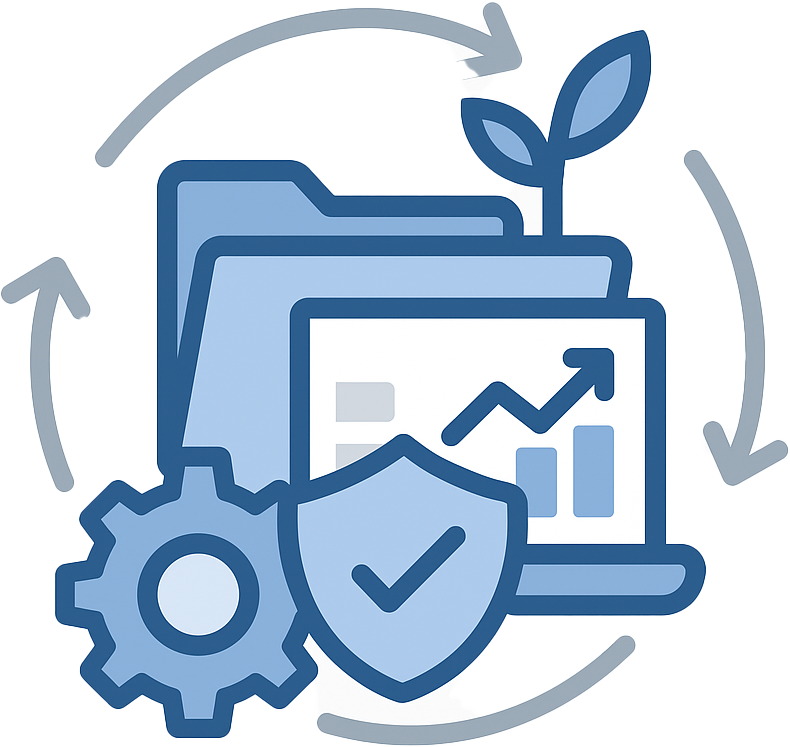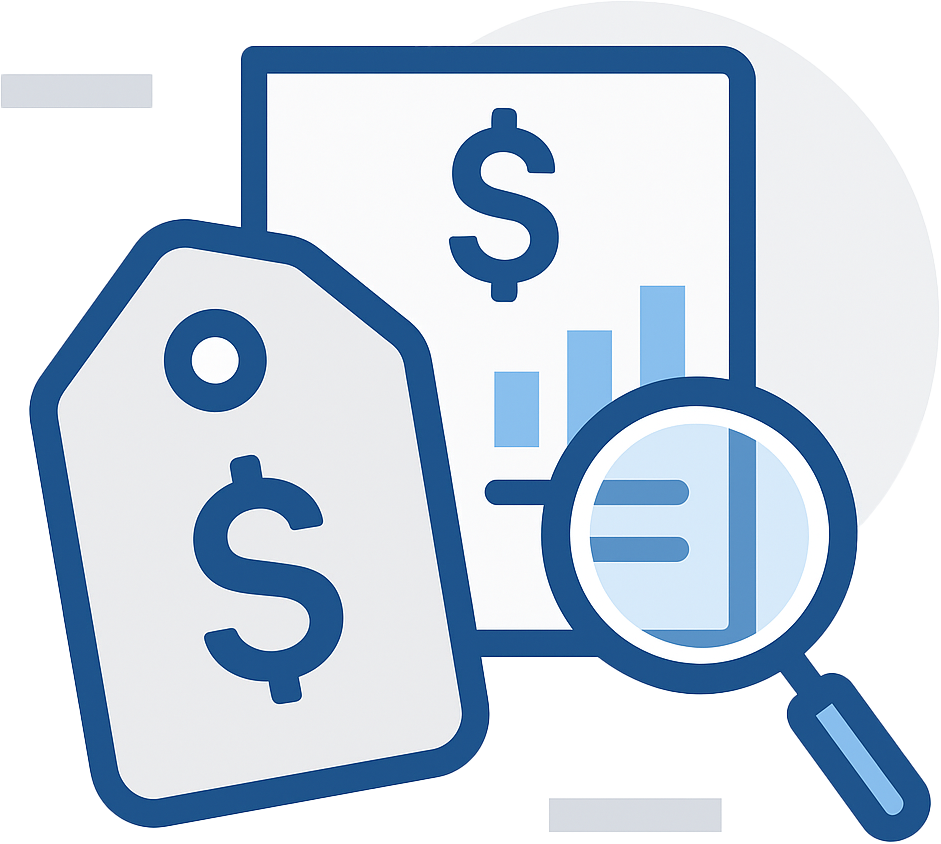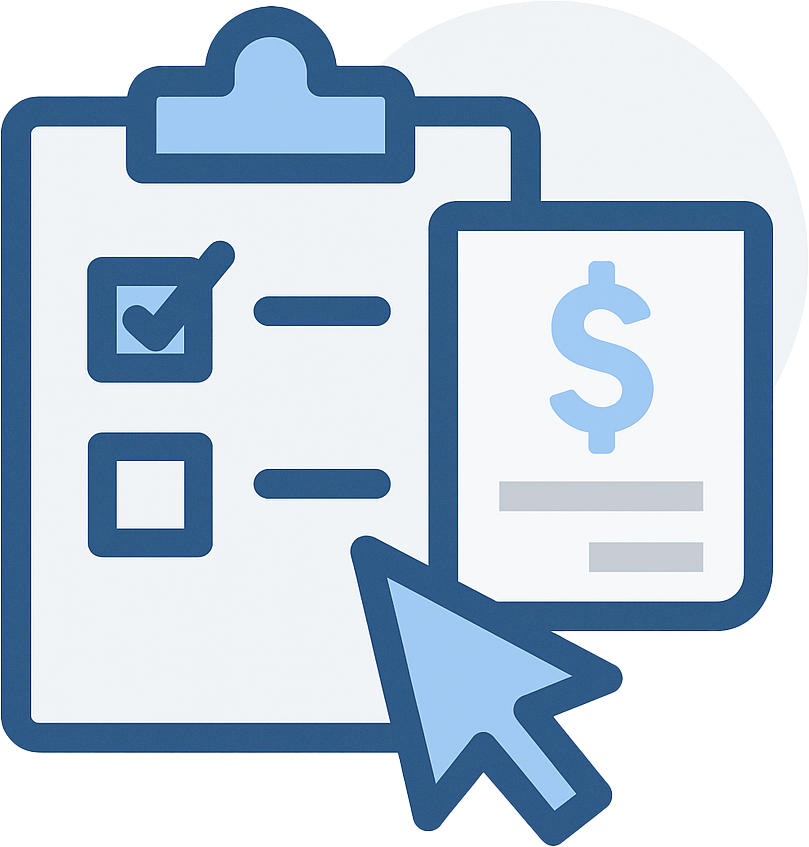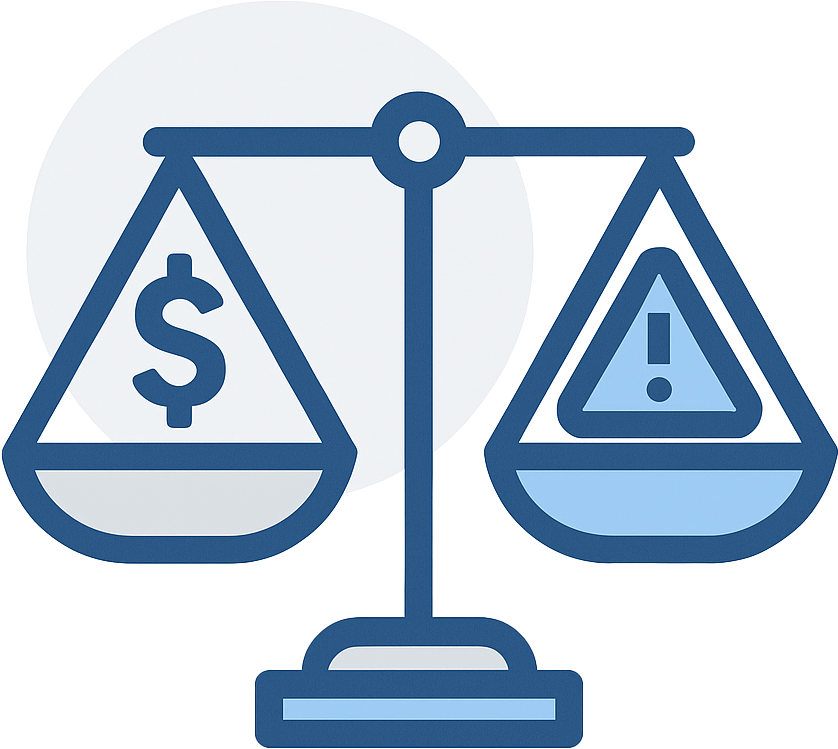Cleaning up your property could save you some headaches when it comes to Phase I Environmental Site Assessments.
A Phase I Environmental Site Assessment is a great way to make sure you're not wasting your money buying a contaminated piece of property. Any savvy buyer of a property is going to perform a Phase I ESA, but what about the seller? We already know (no offense) that buyers shouldn't trust a seller's Phase I ESA, but is there anything the buyer can do to make their life easier?
Can I clean up my site or property before a Phase I ESA?
The short answer is yes. Yes, you the buyer can make your life easier by simply cleaning up your property. However, that doesn't mean you can just throw grass seed on that oily dirt or pour that drum of used antifreeze down the toilet.
Regardless of what you're cleaning, you need to do so in accordance with the law.
Why would I clean up my property before a Phase I ESA?
Think of it in simpler terms: imagine you're selling your house. How many people are going to be interested in a home surrounded by trash, with piles of tires in the backyard, and an interior that's full of junk?
No one!
That's why so many people get their homes cleaned up, repaired where possible, or maybe even painted before it's getting sold. They give the appearance that the home is in great shape and was well cared for.
When our clients hire us to perform a Phase I ESA, there's a lot of background work that goes on before we even visit the site. We learn a plethora of information through online resources, historical records, and some other methods of reconnaissance, but many times the site visit can be one of the most telling parts of the Phase I process. Why? Because so many times we visit a facility with obvious issues.
For example, we've been hired to work on thousands of facilities all over the U.S., Canada, and throughout the Caribbean, and there's one constant out there - most people treat their property like crap. It is astonishing the amount of industry facilities we've seen that look more like a junk-yard.
So why would you clean up your property? The same reason your parents used to make you clean your room, or your significant other wants you to straighten up around the house before company shows up: first impressions. You should clean up your property before a Phase I ESA because you want the environmental professional who shows up to conduct the site inspection to think you're running a tidy, clean, and neat operation, not a junkyard.
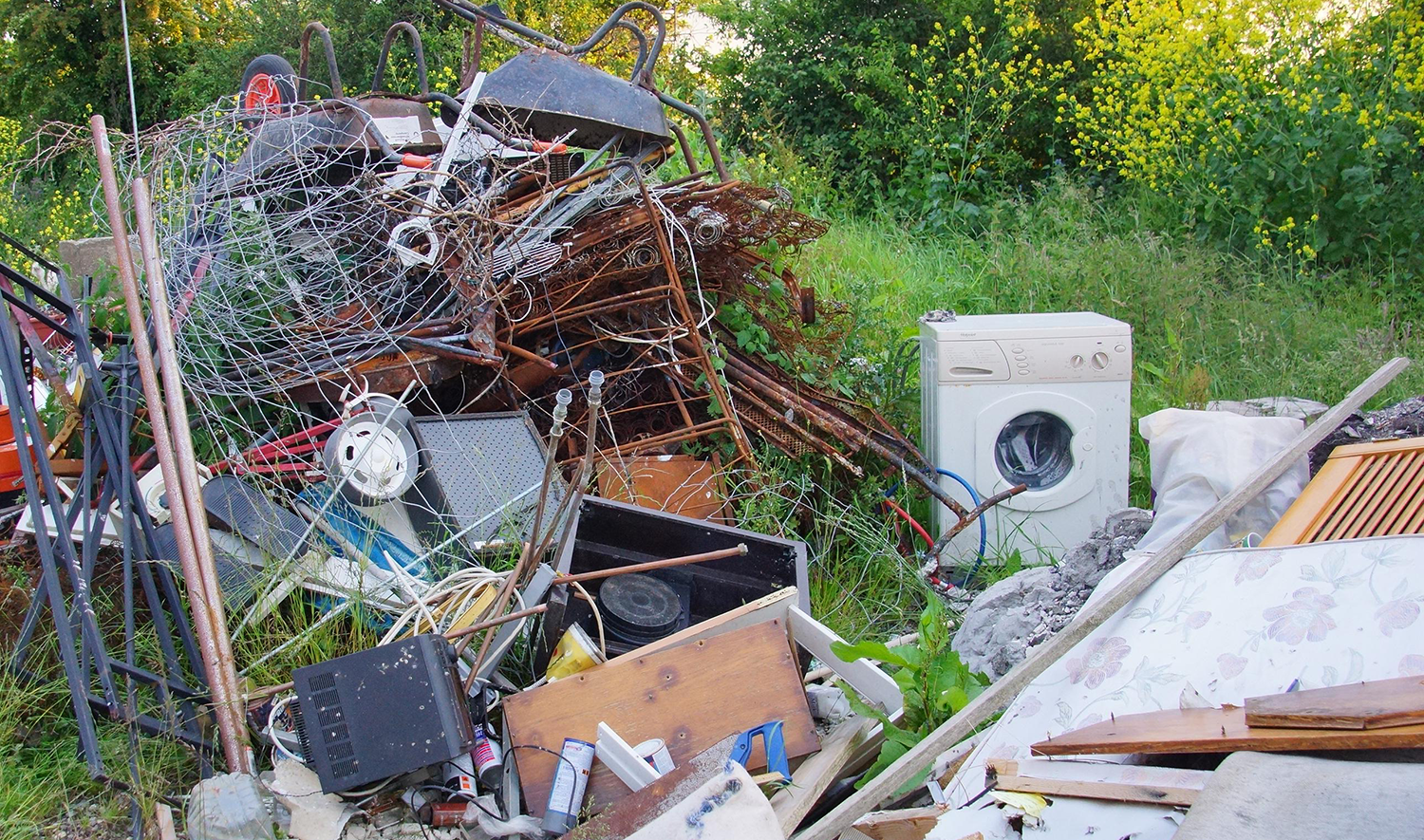
What should you clean up before a Phase I ESA?
While your property might have its own messy problems to deal with, these are some of the more common things we've seen over the years when it comes to unnecessary, messy, unkempt areas at facilities.
Dirty Garage or Maintenance Areas
The number one problem we see with commercial or industrial operations is a garage or maintenance area looking like a war-zone.
Yes, we realize they're inherently dirty and tough to maintain, but that doesn't mean they should look as bad as they normally do. If you spill or are leaking oil out of a tank or drum, clean it up. When you throw sorbent materials or pads on that spill or leak, clean that up too! It's like spilling milk on the counter at your house and just throwing a paper towel on it and walking away. That's not cleaning it up!
We've been to so many operations with drums or tanks surrounded by mountains of stained, black sorbent materials. When we see this we think that you A) don't care about spilling oil or fuel and B) don't care about cleaning things up.
So do yourself a favor, clean up any oil, grease, or any other liquids. Discard (legally!) any sorbent pads, rags, sorbent materials, or anything else that's been used to clean anything. If you're saving used oil, make sure the drums aren't a disaster. Do anything you can to clean up your garage. And most of all, make darn sure you're doing everything by the book. Don't do anything illegal, or dispose of anything illegally.
Drums, Tanks, or Other Containers
When you use a 55-gallon drum of a product, what do you do with it? I've seen them used to make tables and workstations, used for planting, filled with concrete and used as a base for something, used as art, and even used as a grill! It's great to see a product being used for something other than its intended purpose, aka, recycling and reusing an item.
But, I've also seen stacks of them behind a building, or at the other end of the property, rusting and wasting away, collecting rainwater. When asked why, most people mumble some excuse about not spending the time or money to have them removed, or their vendor didn't show up last week, or some other terrible excuse.
Folks, do yourself a favor. Contact your vendors and see if they'll remove them. Clean them out yourself and find a second life for the drum, or crush them for scrap. If all else fails, make a few phone calls and find someone who will remove them, especially if the drums or tanks have any sort of oil/chemical mixed with water, making it a hazardous waste. Make sure you go through legal channels! Drums can't be chucked in a river or thrown in the trash like usual. Do not do anything illegal here, but get rid of those drums, tanks, or other unused and unwanted containers. If you can't identify a purpose for them or figure out why they're on site, then get rid of them!
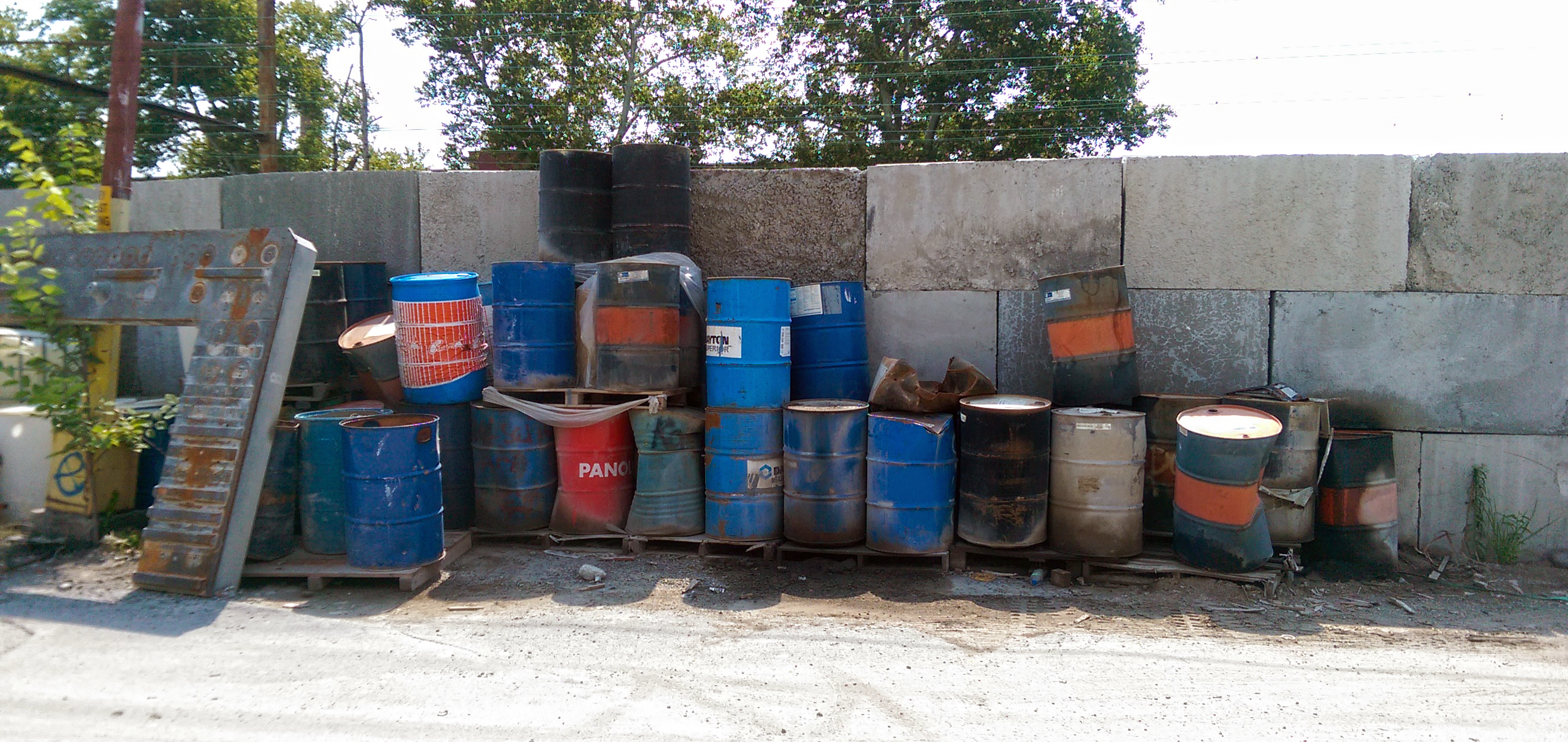
Old Cars, Trucks, or Equipment
Industry site, commercial development, farms, you name it, there's usually some type of inoperable vehicle or equipment sitting there. Maybe it's a front-end loader you're picking apart for scrap, maybe it's an old Chevy in a barn you're tinkering on, maybe it's a decrepit concrete mixer sitting behind the maintenance garage.
All too often we see that next project, old truck, or junk equipment wasting away, rusting to bits, and leaking fuel, anti-freeze or oil into the ground. If you're going to keep equipment or vehicles on site, try to keep them indoors or on paved areas if possible. If they're sitting there for no good reason, get rid of them. Those vehicles are filled with fuels, oils, and other liquids which can contaminate the ground and give the environmental professional performing that Phase I something to poke and prod at.
Fuel Storage & Secondary Containment Areas
All too often we see containment areas, whether they're for tanks or anything else, full of water, garbage, junk, chemical residue, oil residue, old paint cans, soiled rags, etc. When you combine this all together you get a hazardous waste soup that we as environmental professionals take note of.
And, are you 100% sure that the containment area is watertight? I'll tell you what - we aren't. In fact, we're guessing it's NOT watertight. We're going to suppose that some of that hazardous waste soup you've been cooking up is leaking out of the containment area. Why? Because it's our job to make sure every aspect of your site is equally and fairly investigated.
So, if you have a containment area, clean it out. If you have water mixed with oil or chemicals or any type, hire a hazardous waste hauler to come and pump it out. Powerwash it, remove any trash or junk, and make it look better. Again, you need to do this all legally. Do not dispose of anything illegally!
Trash or Clutter
This is the last point, and it's really a catch-all.
Why do so many industrial facilities treat parts of their property like a miniature landfill? I'm not talking about a few old drums or usable, old equipment, I'm talking about trash and clutter. Do yourself a favor and walk your site. Is there garbage lying around? Is there an area where employees head out for a smoke break or drink coffee? Do you have anything on site that is old and unusable anymore? If so, clean up. Walk around the site and pick up anything that shouldn't be on the ground. If you need to hire outside help, do it. If you need to have a few staff members work overtime, do it.
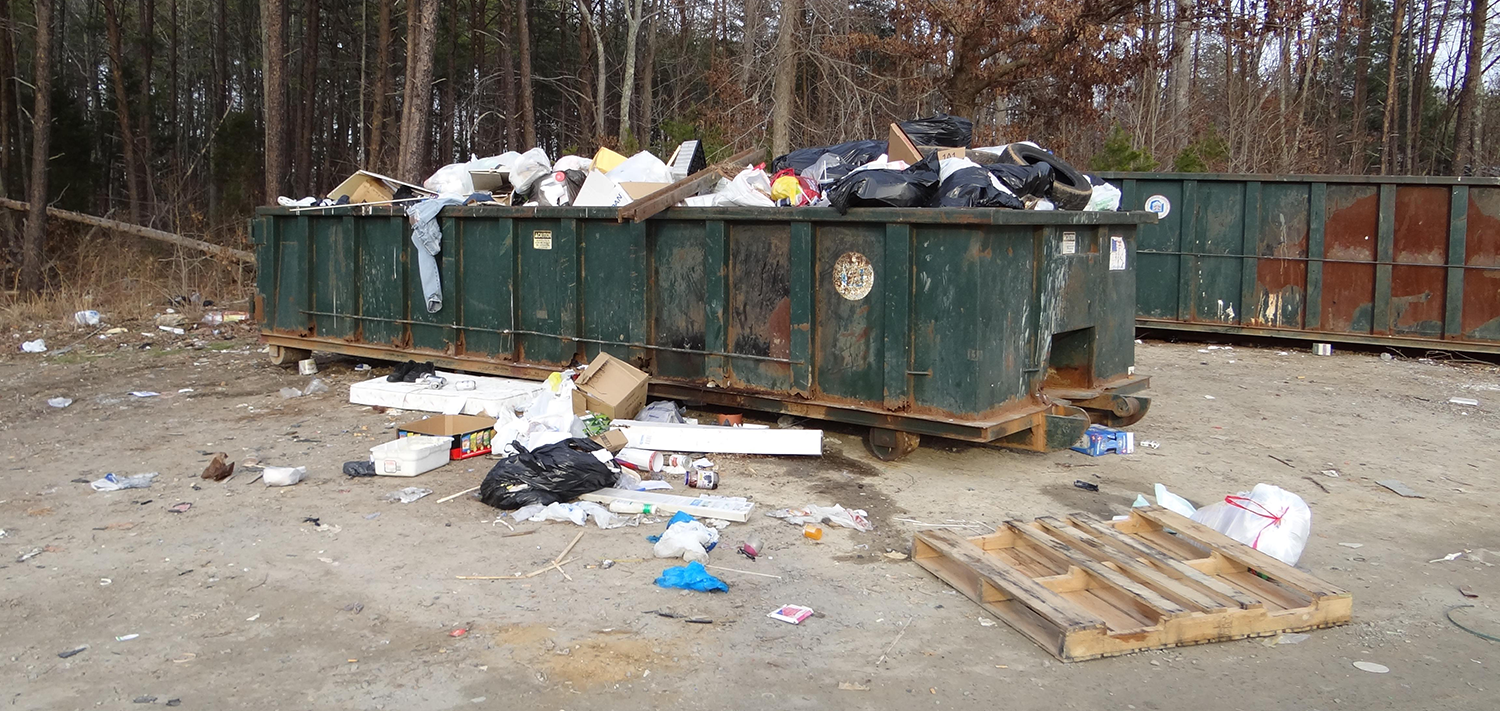
Things to avoid cleaning up before getting a Phase I ESA
Chances are pretty good you don't have a lot of time before someone comes to perform the site inspection portion of the Phase I ESA, so prioritize what you need to clean!
Remember, a Phase I ESA is concerning one thing - contamination from hazardous substances and petroleum products. So, don't worry yourself over things like:
- Mold, Asbestos, and Lead Paint - These are NOT part of a standard Phase I ESA so assuming the Phase I ESA is being performed by the book, these things won't be looked at. However, sometimes banks or other lending institutions, or other private individuals will want those items looked at. While mold, asbestos, or lead paint may have an impact in other areas of the sale or refinancing of the property, they will not impact the outcome of a Phase I ESA. If they do, whoever performed the Phase I ESA isn't doing it correctly. To learn more about what is and isn't included in a Phase I ESA check out our articles:
- Trash or Clutter - Yes, I did say trash and clutter should be addressed above, but your best bet is making a sound judgment call about the trash or clutter. For instance, if you have an area where you store trash or clutter prior to removal, then, by all means, leave it there! If you have a pile of brush, or a composting area, or something else that might not look neat and orderly, look it over and ask yourself "is that normal?" If yes, leave it be. If that pile of trash makes you question anything, investigate it yourself, and look into having it removed from the site.
I'm selling my property and not cleaning anything up, Phase I ESA or not!
Hey, we get it. You're selling because you might want OUT and that means not dealing with you mess anymore. That's fine, but if that's the case, expect trouble.
Again, think about selling a house. If you're sick and tired of the maintenance and dumping money into your house when you sell it expect people to nitpick the problems.
If you don't want to clean up your property before someone performs a Phase I ESA, that's fine. You don't have to, and many people don't! It's a rarity that we see a facility do anything before a Phase I ESA. Many businesses are still running the business, or don't want to admit the business is being sold, so cleaning things up is out of the question. If that's the case, don't sweat it. It's not the end of the world, but it will make the environmental professional conducting the Phase I ESA spend more time on site, checking everything out.
Need help cleaning your property up before a Phase I ESA?
If you are looking for someone to visit your facility and take a gander at what's happening on your site, your best bet is reaching out to someone with some environmental expertise, and this usually means someone aside from your realtor. Of course, this sounds biased, but reaching out to an environmental consultant who understands the Phase I Environmental Site Assessment process (and even better, your industry!) for some pre-Phase I advice could help you navigate the process and learn how you can clean up your property.
To learn more, about the Phase I ESA process, give us a call at 888-RMA-0230 or contact us online to talk to one of our environmental professionals.


